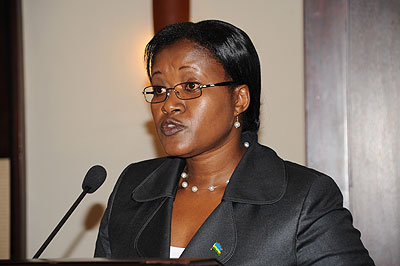The recently approved National Policy on EAC Integration will streamline the management of the integration process and ensure that the EAC integration goes hand-in-hand with the country’s development roadmap.


The recently approved National Policy on EAC Integration will streamline the management of the integration process and ensure that the EAC integration goes hand-in-hand with the country’s development roadmap.As articulated in Rwanda’s long-term development programme, Vision 2020, the policy is part of the sixth pillar which focuses on regional and international economic integration.It ensures an open, liberal trade regime, minimising barriers to trade as well as implementing policies to encourage foreign direct investment, adopting policies to promote competitive enterprises, exports and entrepreneurship, economic zones for ICT-based production in trade and commerce.The national policy is seen as a significant instrument that has come at the right time, when the local population is trying to venture into the regional market.Monique Mukaruliza, the Minister of EAC Affairs, believes it was prudent for Rwandans to have a policy that would help them realise and benefit from the integration process."This policy will enhance the way we implement our cooperation agreement with EAC partner states. For Rwandans to benefit from the integration they need to first understand the entire of EAC, opportunities, obligations and others, that’s why we initiated this national policy to guide them,” she said.The minister further urged nationals to think regionally as it will help them reap from the integration process. "Rwandans should think in the regional context...first they should know that their market is a population of 133.1 million people and not 11 million, the country’s population,” she said.This, Mukaruliza said, calls for provision of quality products that can compete favourably on the regional market.Current figures show that Rwanda’s exports to EAC partner states increased by 68.3 percent, from $14.38 million in the fourth quarter of 2010 to $24.19 million in the same quarter in 2011 according to the National Institute of Statistics of Rwanda (NISR).Michael Muhire, a local trader welcomed the policy, saying it would not only help spur the national’s wellbeing but also accelerate the country’s economy."We needed such documents to guide us towards effective exploitation of the integration process,” he said.Muhire further mentioned that it was a great opportunity for the government to establish the policy adding that what is needed is for all Rwandans to embrace integration."What I realized is that we must be aggressive to manage competition with other players in the region. I have done it and my products are favourably competing with Ugandan, Kenyan and Tanzanian products”, Muhire who deals in food products said.


